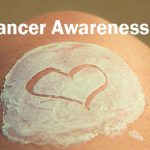You may be confused when hearing that ultraviolet or UV light can be used to treat skin cancer and other skin conditions. Usually, dermatologists stress the fact that you need to protect your skin from UV light found in natural sunlight. While this is true, and sunscreen should be used regularly, UV light can be used to treat a wide variety of skin conditions when administered under medical supervision.
What is ultraviolet light treatment?
Ultraviolet light therapy, also known as phototherapy, is the use of ultraviolet or UV light to treat skin conditions with its healing effects. Ultraviolet light treatments have been used for nearly a century worldwide to treat chronic skin conditions such as psoriasis, eczema and skin cancers.
While many treatments can decrease the overall immune system, ultraviolet light therapy can be used to lower the immune system locally in the skin. This form of therapy is an excellent option for those who don’t like creams, want a natural or steroid-free treatment, or wish to add to a combination of therapies. Ultraviolet light treatment is also a safe treatment option for children and pregnant women.
What are the different types of ultraviolet light treatment?
The sun produces many different ultraviolet UV rays, each with its own wavelength. Ultraviolet A, or UVA, is one of the rays, or wavelengths, created by the sun. Ultraviolet B, or UVB, is another type of ray. Dermatologists use either UVA or UVB based on what will be most effective in treating the specific condition.
UVA light is relatively ineffective unless combined with the light-sensitizing medication psoralen, which is either applied directly to the skin or ingested. This type of UV light treatment is known as PUVA and slows down excessive skin cell growth. Plaque psoriasis, guttate psoriasis and psoriasis on the palms and soles of the feel are most responsive to PUVA treatment.
UVB light treatments can be done without medication. This type of therapy is administered using an artificial UVB light source. Some UVB treatments involve traditional UV lamps or bulbs while others use LED bulbs.
What conditions can be treated with ultraviolet light?
Ultraviolet light is a potential treatment option for the following skin conditions:
- Psoriasis
- Vitiligo, a loss of skin pigment that often appears as white blotches on the skin
- Persistent itching or pruritus
- Eczema
- Cutaneous T-cell lymphoma, a rare form of cancer that usually involves the skin
- Graft-versus-host disease, a complication associated with bone marrow transplants
It’s not entirely known why certain skin conditions respond to ultraviolet light; it may be due to it slowing the overgrowth of skin cells and altering the immune system. In conditions such as psoriasis, this type of therapy can also help slow the development of scaly, thnk skin. When treating vitiligo, ultraviolet light therapy stimulates melanocytes, the skin’s pigment-producing cells.
What is it like receiving ultraviolet light therapy?
Ultraviolet light therapy is usually performed in a medical clinic. Your dermatologist can administer UV light therapy with a variety of devices. These devices include a large, full-body unit such as a light bed or light cabinet, as well as smaller devices such as a light cabinet for the hands and feet, hand-held light, combs that emit light for the scalp, and lasers that focus on small areas.
Ultraviolet light therapy sessions often occur two to seven days a week. These sessions may last from a few seconds to an hour. It may take many sessions before you notice an adequate response.
Consistency is key when treating skin conditions with UV light. If your condition responds well to UV treatments, less frequent sessions may be needed.
Where can I get UV light treatment in Columbia?
Our board-certified dermatologists at Columbia Skin Clinic use UV light therapy to treat patients living with psoriasis, vitiligo, eczema, certain types of lymphoma and a variety of other skin diseases every day. Let our qualified team of dermatologists provide relief from these skin issues. Contact us to schedule an appointment.






